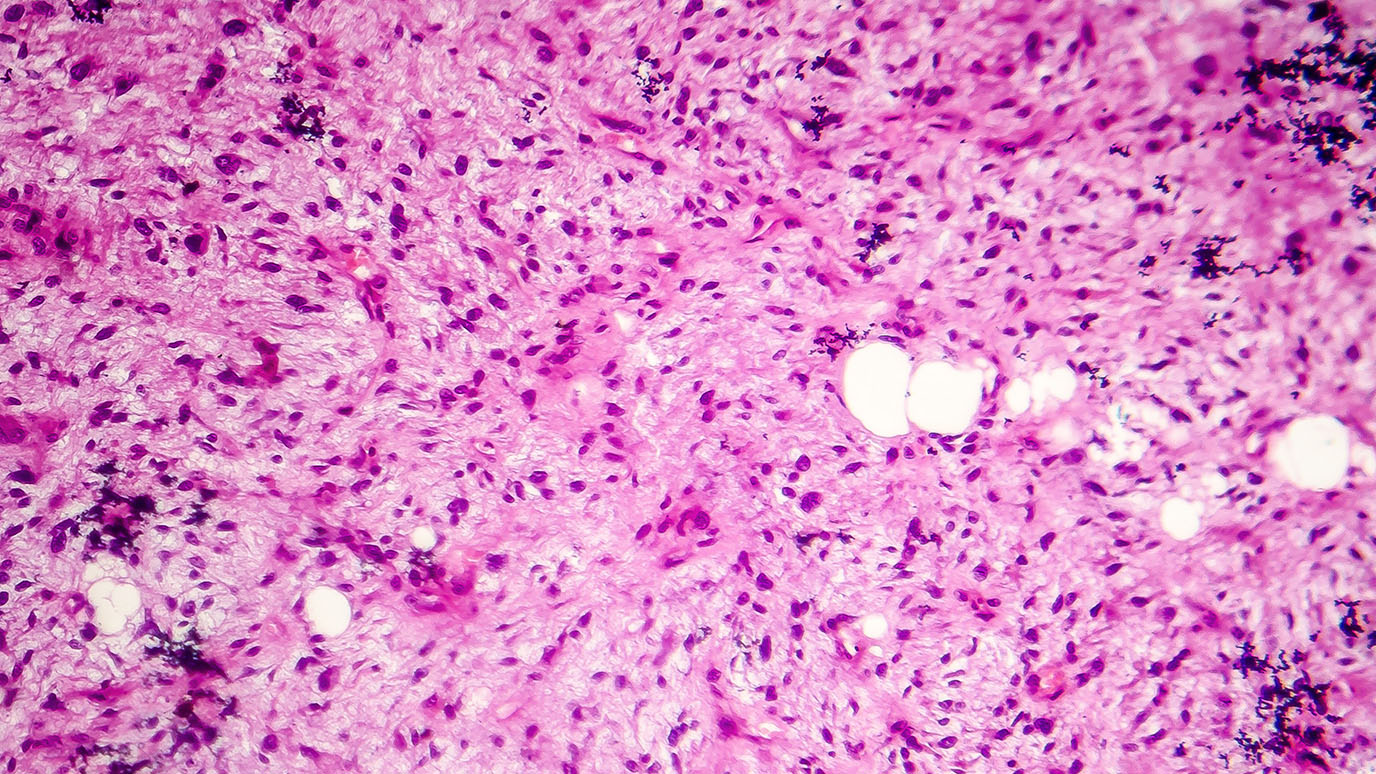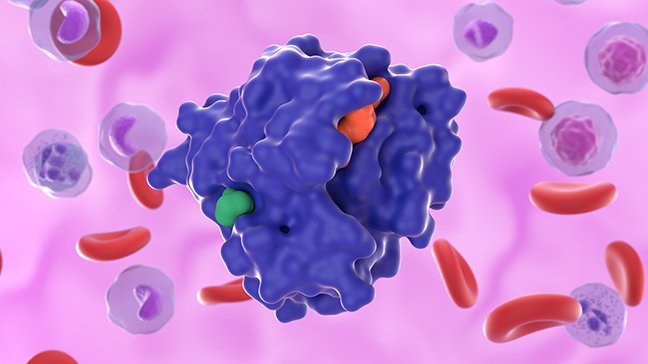- Diseases
- Acoustic Neuroma (16)
- Adrenal Gland Tumor (24)
- Anal Cancer (70)
- Anemia (2)
- Appendix Cancer (18)
- Bile Duct Cancer (26)
- Bladder Cancer (74)
- Brain Metastases (28)
- Brain Tumor (234)
- Breast Cancer (726)
- Breast Implant-Associated Anaplastic Large Cell Lymphoma (2)
- Cancer of Unknown Primary (4)
- Carcinoid Tumor (8)
- Cervical Cancer (164)
- Colon Cancer (168)
- Colorectal Cancer (118)
- Endocrine Tumor (4)
- Esophageal Cancer (44)
- Eye Cancer (36)
- Fallopian Tube Cancer (8)
- Germ Cell Tumor (4)
- Gestational Trophoblastic Disease (2)
- Head and Neck Cancer (14)
- Kidney Cancer (130)
- Leukemia (342)
- Liver Cancer (50)
- Lung Cancer (286)
- Lymphoma (278)
- Mesothelioma (14)
- Metastasis (30)
- Multiple Myeloma (100)
- Myelodysplastic Syndrome (60)
- Myeloproliferative Neoplasm (6)
- Neuroendocrine Tumors (16)
- Oral Cancer (102)
- Ovarian Cancer (178)
- Pancreatic Cancer (160)
- Parathyroid Disease (2)
- Penile Cancer (14)
- Pituitary Tumor (6)
- Prostate Cancer (150)
- Rectal Cancer (58)
- Renal Medullary Carcinoma (6)
- Salivary Gland Cancer (14)
- Sarcoma (238)
- Skin Cancer (300)
- Skull Base Tumors (56)
- Spinal Tumor (12)
- Stomach Cancer (66)
- Testicular Cancer (28)
- Throat Cancer (92)
- Thymoma (6)
- Thyroid Cancer (100)
- Tonsil Cancer (30)
- Uterine Cancer (86)
- Vaginal Cancer (18)
- Vulvar Cancer (22)
- Cancer Topic
- Adolescent and Young Adult Cancer Issues (22)
- Advance Care Planning (12)
- Biostatistics (2)
- Blood Donation (18)
- Bone Health (8)
- COVID-19 (360)
- Cancer Recurrence (120)
- Childhood Cancer Issues (120)
- Clinical Trials (628)
- Complementary Integrative Medicine (22)
- Cytogenetics (2)
- DNA Methylation (4)
- Diagnosis (238)
- Epigenetics (6)
- Fertility (62)
- Follow-up Guidelines (2)
- Health Disparities (14)
- Hereditary Cancer Syndromes (128)
- Immunology (18)
- Li-Fraumeni Syndrome (8)
- Mental Health (122)
- Molecular Diagnostics (8)
- Pain Management (62)
- Palliative Care (8)
- Pathology (10)
- Physical Therapy (18)
- Pregnancy (18)
- Prevention (936)
- Research (390)
- Second Opinion (78)
- Sexuality (16)
- Side Effects (616)
- Sleep Disorders (10)
- Stem Cell Transplantation Cellular Therapy (216)
- Support (408)
- Survivorship (328)
- Symptoms (182)
- Treatment (1788)
22 research highlights from the past year
9 minute read | Published December 19, 2022
Medically Reviewed | Last reviewed by an MD Anderson Cancer Center medical professional on December 19, 2022
From unlocking the secrets of the tumor microenvironment to advancing new therapies to FDA approval, MD Anderson researchers are driven by a shared goal to end cancer. As some of the top minds in the world, their groundbreaking research is shaping the future of the field and transforming cancer care.
These breakthroughs are possible because of MD Anderson’s unique research environment, which allows new insights to move seamlessly from the lab to the clinic and back. This ongoing cycle of innovation and collaboration makes MD Anderson an ideal environment to achieve progress at an unmatched pace.
Here are 22 impactful MD Anderson research accomplishments across the spectrum of cancer science from this past year.
1. James P. Allison Institute launched to usher in a new era for immunotherapy
Immunotherapy has transformed cancer care, but not all patients benefit equally – yet. To change that, MD Anderson launched the James P. Allison Institute in March 2022. Building on the exceptional science that made immunotherapy a reality, this visionary research and innovation hub will enable groundbreaking research to integrate immunobiology across disciplines and unlock the full potential of science and medicine for human health.
“Our vision is to lead the world in immunotherapy research by empowering interdisciplinary scientific excellence and accelerating discoveries into novel and synergetic therapies that enable cures,” says James P. Allison, Ph.D., director of the Allison Institute.
2. Study clarifies link between inflammation and pancreatic cancer development
Chronic inflammation is associated with pancreatic cancer development, but the underlying causes have remained a mystery. Researchers led by Edoardo Del Poggetto, Ph.D., I-Lin Ho, Ph.D., and Andrea Viale, M.D., discovered that pancreatic cells respond to repeated inflammation in a way that initially protects the organ but can later promote cancer development. The results, published in Science, may be used to one day prevent pancreatic cancer.
Learn more here.
3. New projects using data and computational sciences to advance breakthroughs
Together with The University of Texas at Austin’s Oden Institute for Computational Engineering and Sciences and Texas Advanced Computing Center, MD Anderson researchers are combining cancer research with data and computational sciences to better predict prostate cancer growth, to study blood cancers at the single-cell level, to improve therapy delivery to the liver, and to more accurately distinguish melanoma from benign lesions.
Learn more here.
4. Survivorship program improves physical activity in breast cancer survivors
The Active Living After Cancer program improved physical activity and the ability to accomplish basic daily pursuits for breast cancer survivors, according to a study published in Cancer. The research, led by Karen Basen-Engquist, Ph.D., could serve as a model to deliver a community-based physical activity program to minority and medically underserved cancer survivors.
Learn more here.
5. Cancer cells produce unique collagen to protect from immune response
Research led by Raghu Kalluri, M.D., Ph.D., discovered that cancer cells produce an abnormal form of collagen, found nowhere else in the body, that affects the tumor microbiome and protects against immune responses. The findings, published in Cancer Cell, suggest that this abnormal collagen may offer a highly specific therapeutic target.
Learn more here.
6. New joint venture focused on accelerating the development of novel cell therapies
MD Anderson and National Resilience, Inc. together launched the Cell Therapy Manufacturing Center (CTMC) to speed up the development and manufacturing of innovative cell therapies for cancer. Built on the framework of MD Anderson’s Biologics Development platform, CTMC is working to address manufacturing obstacles to more rapidly bring cell therapies to patients in need.
“We believe in the tremendous potential of cell therapies to deliver solutions that offer cures, not merely prolonged survival. Our mission at MD Anderson is to end cancer, and this joint venture is a strategic step toward realizing that goal,” says Ferran Prat, Ph.D., J.D., senior vice president for Research Administration and Industry Relations.
Learn more here.
7. MD Anderson receives over $10 million from Break Through Cancer to support collaborative research
Break Through Cancer is a public foundation that brings together the top U.S. cancer centers in the pursuit of new solutions for the most challenging cancers. In April, MD Anderson was awarded more than $10 million in grants to support collaborative teams focused on cancer interception and treatment strategies for pancreatic cancer, ovarian cancer and glioblastoma.
Learn more here.
8. Survival improved by pre-surgical immunotherapy in patients with soft tissue sarcoma
In a Phase II trial led by Christina Roland, M.D., and Neeta Somaiah, M.D., immune checkpoint inhibitors given before surgery resulted in favorable responses and outcomes for two different types of soft tissue sarcoma. The findings, including a detailed immune analysis and identification of a new biomarker associated with responses, were presented by Emily Keung, M.D., at the 2022 American Society for Clinical Oncology (ASCO) Annual Meeting.
Learn more here.
9. Genetic study achieves a new understanding of DCIS breast cancer
A study published in Nature Genetics has shifted the traditional belief that all invasive breast cancers following a diagnosis of ductal carcinoma in situ (DCIS) arise from that DCIS. Instead, the results show that nearly 20% of cancers were genetically unrelated to the original DCIS, providing a deeper understanding that could improve future prevention strategies. The research was led by Tapsi Kumar, Ph.D., together with Nicholas Navin, Ph.D., Andy Futreal, Ph.D., and the global Cancer Grand Challenges PRECISION team.
Learn more here.
10. A new blood test to predict who may benefit from lung cancer screening
Combining an MD Anderson-developed blood test with an established risk-prediction model could enable more accurate prediction of those likely to benefit from lung cancer screening compared to current U.S. guidelines. Results from the four-protein test developed by Sam Hanash, M.D., Ph.D., and colleagues were published in the Journal of Clinical Oncology.
Learn more here.
11. MD Anderson-led trial drives new FDA approval for kidney cancer associated with von Hippel-Lindau disease
A Phase II study led by Eric Jonasch, M.D., demonstrated that the targeted therapy belzutifan, which inhibits HIF-2α, achieved a 49% objective response rate in patients with kidney cancer associated with von Hippel-Lindau (VHL) disease. Jonasch and colleagues at MD Anderson led the clinical development of this drug, which led to its FDA approval. The study was published in the New England Journal of Medicine a few months later in November 2021.
“These results profoundly change the way we manage patients with VHL disease and will provide an impactful benefit to a majority of patients with VHL,” Jonasch says.
Learn more here.
12. MDS study points to new therapeutic approach for resistant disease
According to results published in Nature Medicine, treatment resistance in patients with myelodysplastic syndromes (MDS) is caused by two distinct groups of stem cells that persist after treatment. The research, led by Simona Colla, Ph.D., revealed new insights into these cells and points to promising treatment strategies for these patients.
Learn more here.
13. Radio-labeled molecule enables real-time imaging of inflammation in the body
Researchers led by David Piwnica-Worms, M.D., Ph.D., developed a new radio-labeled molecule with the ability to react specifically with by-products of innate immune activity. The discovery, published in Nature Biotechnology, may offer a non-invasive approach to monitor and pinpoint areas of inflammation in a variety of clinical settings.
Learn more here.
14. Adolescent and young adult leukemia survivors have shorter lifespans than peers
Research led by Michael Roth, M.D., discovered that long-term survival disparities exist between adolescent and young adult (AYA) survivors of acute lymphoblastic leukemia and acute myeloid leukemia compared to peers that did not have cancer. The study, published in Cancer Epidemiology, Biomarkers & Prevention, suggests more surveillance and research is needed to understand factors impacting survivorship for AYAs and to improve long-term outcomes.
Learn more here.
15. NK cells plus bispecific antibody shows promising results for patients with lymphoma
A novel cell therapy combining donor-derived natural killer (NK) cells with an antibody targeting CD16A on NK cells and CD30 on lymphoma cells achieved a response in 89% of patients with advanced lymphoma. Results from the Phase II study, led by Yago Nieto, M.D., Ph.D., were presented at the American Association for Cancer Research (AACR) Annual Meeting 2022.
Learn more here.
16. Melanoma trial leads to FDA approval for novel immune checkpoint inhibitor
A Phase II/III study led by Hussein Tawbi, M.D., Ph.D., resulted in the 2022 FDA approval of relatlimab, a new checkpoint inhibitor targeting LAG-3, in combination with nivolumab for patients with untreated, advanced melanoma. The combination doubled progression-free survival compared to nivolumab alone, according to results published in the New England Journal of Medicine.
“The results from this global effort advance the field of immunotherapy by establishing a third class of immune checkpoint inhibitors through the LAG-3 pathway and have the potential to be practice-changing,” Tawbi says.
Learn more here.
17. Pre-surgical immunotherapy effective in lung cancer
A Phase II trial led by Tina Cascone, MD., Ph.D., found that combination immunotherapy outperformed a single immune checkpoint inhibitor when given before surgery for patients with early-stage non-small cell lung cancer. The study, presented at the American Association for Cancer Research (AACR) Annual Meeting 2022, adds to increasing evidence that neoadjuvant immunotherapy has a role in treating lung cancer.
Learn more here.
18. Targeted therapy extends survival for patients with metastatic breast cancer
In a Phase III trial led by Gabriel Hortobagyi, M.D., the targeted therapy ribociclib showed a significant overall survival benefit when combined with hormone therapy for postmenopausal patients with HR positive, HER2 negative metastatic breast cancer. The results were published in The New England Journal of Medicine.
Learn more here.
19. CAR T cell therapy effective as first treatment in patients with high-risk lymphoma
A Phase II trial led by Sattva Neelapu, M.D., demonstrated the chimeric antigen receptor (CAR) T cell therapy axicabtagene ciloleucel (axi-cel) achieved an 89% overall response rate and 78% complete response rate for patients with high-risk large B-cell lymphoma. The results, which were published in Nature Medicine and presented at the 2021 American Society for Hematology (ASH) Annual Meeting suggest axi-cel may be a promising alternative to current treatment with chemotherapy.
Learn more here.
20. Nanocomplexes guided by ultrasound can improve immunotherapy efficacy
A study published in Nature Nanotechnology demonstrated a novel platform that uses ultrasound to guide microbubbles combined with nanocomplexes to deliver an immune signal to specific immune cells. The platform, developed by Wen Jiang, M.D., Ph.D., generated systemic anti-tumor immunity and enhanced the activity of immune checkpoint inhibitors in preclinical models.
Learn more here.
21. Serial radiation is safe and effective alternative to systemic therapy for kidney cancer
In a Phase II trial led by Chad Tang, M.D., researchers demonstrated that radiation therapy given alone was a safe and effective treatment for oligometastatic kidney cancer, which is characterized by a small number of metastases. The study, published in The Lancet Oncology, suggests this approach may be a suitable, noninvasive alternative to current systemic therapies.
Learn more here.
22. High-fiber diet may improve immunotherapy outcomes in patients with melanoma
In a study published in Science, Jennifer Wargo, M.D., Carrie Daniel-MacDougall, Ph.D., and colleagues demonstrated that patients with melanoma who reported eating more fiber-rich foods at the start of immunotherapy treatment had improved outcomes. The result spurred a prospective trial, led by Jennifer McQuade, M.D., to evaluate the impact of diets with varying fiber content on the microbiome and immune responses.
“These results provide further support for clinical trials to modulate the microbiome with the goal of improving cancer outcomes using dietary and other strategies,” Wargo says.
Learn more here.
Request an appointment at MD Anderson online or by calling 1-844-594-0136.







